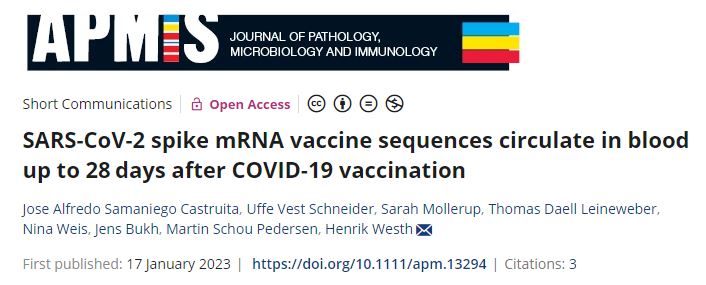
How Long Do mRNA Vaccines Stay in Blood? What It Means for Blood Recipients
Transfusion Safety Questioned After mRNA Vaccines
New research shows mRNA vaccine components persisting in blood up to 28 days after vaccination, yet blood donation is allowed after just 7 days. This raises concerns about transfusion safety and highlights the importance of informed medical choices.
Key Takeaways
- A Denmark study found that nearly 10% of vaccinated individuals still had mRNA vaccine components in their blood after 28 days, contradicting early safety claims.
- Current blood donation guidelines allow people to donate just 7 days after receiving an mRNA COVID-19 vaccination, raising questions about transfusion policies.
- Medical autonomy organisations like My Medical Choice provide legal frameworks for individuals to document their transfusion preferences.
- There are medical alternatives to traditional blood transfusions that some individuals may prefer based on personal choices.
- Understanding blood transfusion options gives individuals control over healthcare decisions aligned with their personal values.
Evidence of mRNA in Blood After COVID-19 Vaccination
Blood transfusion safety questions have new dimensions in the era of mRNA vaccines. While transfusions save lives daily, recent research has prompted questions about vaccine components in donated blood.
My Medical Choice, an organisation focused on individual medical autonomy, believes people need complete information to make informed decisions about their healthcare, including transfusions.
The Denmark Study Contradicting Official Claims
What Officials Initially Told the Public
From the beginning of the mRNA COVID-19 vaccine rollout, health authorities made statements about vaccine components. They stated that mRNA and lipid nanoparticles would remain primarily at the injection site and nearby lymph nodes, breaking down quickly and not entering the general circulation in significant amounts. People questioning this position often found their concerns dismissed.
Scientific Evidence of mRNA Persistence in Blood
A Denmark-based study examining both Pfizer and Moderna mRNA vaccines found something different. The researchers identified detectable levels of vaccine components in participants’ blood beyond what officials initially suggested.
The 28-Day Detection Window
The study showed that nearly 10% of vaccinated study participants still had traces of the vaccine in their bloodstream at 28 days post-vaccination. These figures included a 50% placebo group, and in Denmark, vaccinators must aspirate before injecting to ensure they aren’t injecting directly into a blood vessel.
Blood Donation Policies Under Scrutiny
The 7-Day Waiting Period for Donors
Current blood donation guidelines in many countries, including the NHS in the United Kingdom, permit individuals to donate blood just seven days after receiving an mRNA COVID-19 vaccination. This timeline aligns with the Denmark study’s findings that vaccine components may persist in the bloodstream of some individuals for longer periods. This has prompted questions about whether the waiting period aligns with current research. If some vaccinated individuals still have vaccine components in their blood at 28 days, should donation policies be reviewed? The current timeline appears based on earlier understanding of how quickly vaccine components clear the body.
Lack of Screening for Vaccine Components
Standard screening protocols for donated blood focus on detecting infectious diseases, blood type compatibility, and certain antibodies – not vaccine components. Blood donation centres do not routinely test for mRNA vaccine components or lipid nanoparticles in donated blood.
This means recipients currently have no way to know whether the blood they receive contains these components, which may matter to those with specific concerns about their medical care.
Medical Autonomy in Blood Transfusion Decisions
Legal Rights to Refuse Blood Transfusions
Medical law in most jurisdictions recognises that competent adults have the right to refuse specific medical treatments, including blood transfusions, even when such refusal might impact their health outcomes. This principle of bodily autonomy is fundamental to modern healthcare ethics and supported by the requirement for informed consent.
An Advance Decision Notice (ADN) or similar legal document can formalise these wishes and help ensure they’re respected even when a patient cannot communicate. These documents allow individuals to specify their preferences regarding blood transfusions and other medical interventions before any emergency arises.
Denmark-based report
A Denmark-based report has recently emerged showing data from a study performed on Pfizer and Moderna mRNA-based vaccines back in May-June 2021.
Researchers found that nearly 10% of the vaccinated individuals had traces of the vaccine in their blood at 28 days. It’s important to consider that these figures include a 50% placebo group. Additionally, in Denmark, vaccinators must aspirate before injecting to ensure they are not injecting into a blood vessel when administering intramuscular injections.
You can read the full study here, or click the picture below…

Alternatives to Traditional Blood Transfusions:
1. Cell Salvage Machines
Cell salvage (also known as autologous blood recovery) is a procedure that collects blood lost during surgery, processes it, and returns it to the patient. This technology has improved significantly and is now used in many surgical settings, including cardiac, vascular, and orthopaedic procedures.
The process involves collecting blood from the surgical site, filtering it to remove debris, washing the red blood cells, and then returning these cells to the patient. For some procedures, this method can reduce or eliminate the need for donor blood.
2. Private Blood Donor Options
Some individuals prefer to receive blood only from donors they know personally. This arrangement, while requiring advance planning, allows recipients to select donors based on specific criteria important to them, such as lifestyle choices or other personal preferences.
Services like the National Blood Donor Database offered by My Medical Choice help connect potential recipients with compatible donors who share similar health values and preferences.
3. Bloodless Surgery Techniques
Modern surgical approaches have been developed to minimise blood loss, potentially reducing the need for transfusions in some cases. These include:
- Minimally invasive surgery with smaller incisions
- Advanced instruments that reduce bleeding during procedures
- Specialised surgical planning to minimise blood loss
- Hemostatic agents that promote clotting at surgical sites
- Hemodilution techniques that can reduce the impact of blood loss
Documenting Your Transfusion Preferences
Clear documentation of transfusion preferences helps ensure your wishes are respected in medical situations. An Advance Decision Notice specifically addressing blood transfusions should detail acceptable blood products or alternatives and the conditions under which your choices apply.
Protecting Your Medical Choices in Emergency Situations
In emergency scenarios, medical decisions happen rapidly, and patients may be unable to communicate their preferences. This is exactly when having properly documented medical directives becomes vital. Without clear documentation, healthcare providers naturally follow standard protocols, which may not always align with your personal preferences regarding treatments like blood transfusions.
A comprehensive system for protecting your medical autonomy might include several elements:
- Medical alert identification: Wearable medical alert tags, wallet cards, and emergency information on your smartphone that quickly inform first responders about your medical preferences
- Legal documentation: Properly executed Advance Decision Notices and Lasting Power of Attorney documents that provide the legal framework for respecting your choices
- Emergency contacts: Designated individuals who understand your medical preferences and can advocate on your behalf when you cannot
- Digital accessibility: Services that store your medical directives securely while making them accessible to emergency personnel when needed
Standard emergency protocols typically include blood transfusions for serious trauma cases when deemed medically necessary. Without specific documentation addressing this treatment, medical staff will provide what they consider appropriate care based on their professional judgment and standard practices.
The best time to establish your medical preferences is before any emergency occurs, ensuring that your right to make informed decisions about your healthcare extends to even the most urgent circumstances.
Protecting Your Medical Choices
Maintaining medical autonomy regarding treatments like blood transfusions requires thoughtful planning. Several steps can help ensure your healthcare preferences are respected:
- Stay informed: Research current medical information from reliable sources to make educated decisions about your healthcare preferences
- Document legally: Create legally binding advance directives that clearly address your preferences regarding specific treatments
- Carry identification: Consider medical alert identification that indicates important medical information for emergency situations
- Communicate with providers: Before scheduled procedures, discuss your healthcare preferences with your medical team
- Designate advocates: Ensure family members or trusted friends understand your choices and can advocate for you if necessary
The Denmark study on mRNA persistence in blood has contributed to ongoing discussions about blood donation policies. While scientific understanding continues to develop, the principle of informed consent remains fundamental to medical ethics. Every person deserves access to current information to make healthcare decisions aligned with their personal values.
My Medical Choice provides systems for documenting and communicating your medical preferences, helping ensure your healthcare choices are respected even in emergency situations.

